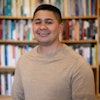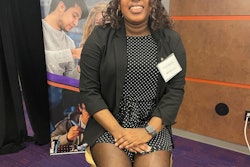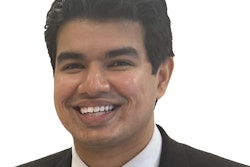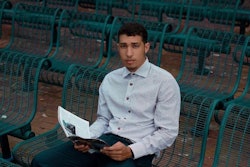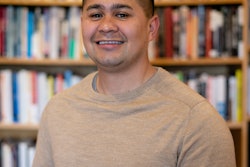Institution: University of Illinois Chicago, College of Nursing
Graduate Program: Ph.D. in Nursing with a Certificate in Disability Ethics
Education: B.S. in Nursing, The Ohio State University; Intensive Summer Arabic Program, American University of Beirut
Mentor: Dr. Sarah Abboud, UIC College of Nursing; Dr. Em Rabelais, Independent Scholar; Dr. Carrie Sandahl, UIC, Disability and Human Development; Dr. Beth Marks, UIC, Disability and Human Development; and the late Dr. Patricia Cunningham, OSU, Department of Social Change
During her Bachelor of Science in Nursing studies, Sabrina Jamal-Eddine informed a clinical instructor about her back disability and lifting limitation as well as explaining that she could do everything but except lift a patient. She was taken into an administrative office and questioned why she had applied to a major she wasn’t physically capable of doing. Jamal-Eddine explained she wouldn’t be going into bedside nursing and was well-aware there were diverse and accommodating pathways in the nursing profession.
“My long-term goal is to explore, confront and disrupt ableism (discrimination in favor of able-bodied people) in the context of nursing, applied health sciences and medical education,” said Jamal-Eddine, a doctoral student at the University of Illinois Chicago (UIC), College of Nursing. “I hope to design, create and implement a variety of innovative, interdisciplinary arts and community-engaged pedagogy that will bridge that gap between critical disability studies and healthcare education by preparing healthcare students to be cognizant of, and opposed to, oppressive, ableist healthcare attitudes and practices.”
A second undergraduate major in Women’s, Gender and Sexuality Studies fortified her desire to be a voice for change both in healthcare and healthcare education. At the beginning of her doctoral studies, she examined existing literature, which made clear there was a need to explore innovative pedagogies to educate nursing students and instructors about ableism and disability.
“I came to understand the ways in which the institution of nursing education structurally excludes disabled students from entering our profession,” said Jamal-Eddine. “These are experiences that are unfortunately shared by disabled clinical healthcare students across the nation, including disabled nursing students, medical students and applied health sciences students.”
After exploring and studying the effectiveness of spoken word poetry pieces as an undergraduate, Jamal-Eddine came to see how systemic change could be propelled through storytelling. Her doctoral research explores the use of spoken word poetry as a form of critical narrative pedagogy to educate nursing students about disability, ableism, and disability justice.



